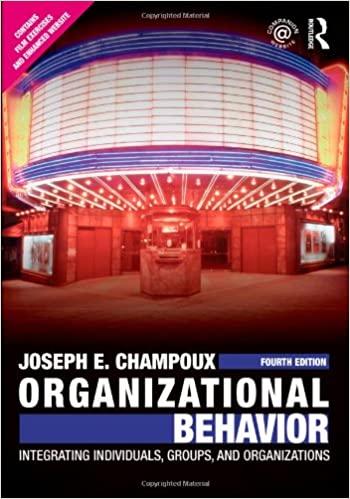Question
In the intricate landscape of cost accounting, businesses often grapple with multifaceted challenges related to cost classification, allocation, and control. Considering the nuances of cost
In the intricate landscape of cost accounting, businesses often grapple with multifaceted challenges related to cost classification, allocation, and control. Considering the nuances of cost behavior, how can organizations distinguish between fixed, variable, semi-variable, and step costs to make accurate predictions about future expenses and streamline budgetary processes? Moreover, in the context of manufacturing entities, how does activity-based costing (ABC) provide a more nuanced understanding of overhead costs by assigning them to specific activities and products, thus enhancing the precision of cost analysis and pricing strategies?
Furthermore, as businesses expand globally and engage in diverse production methods, how does standard costing facilitate the establishment of cost benchmarks, enabling companies to assess their performance against predetermined standards and identify variances for corrective action? In the realm of service industries, where tangible products are replaced by intangible services, what challenges and methodologies are involved in measuring and assigning costs, particularly when services are multifaceted and require the integration of various resources and expertise?
Additionally, exploring the depths of cost-volume-profit (CVP) analysis, how do businesses leverage this tool to comprehend the interplay between costs, sales volumes, and profitability, enabling them to make informed decisions regarding pricing strategies, production levels, and revenue targets? In the evolving landscape of technology, how has the implementation of advanced cost accounting systems, such as Activity-Based Costing (ABC) and Enterprise Resource Planning (ERP) systems, transformed traditional cost accounting methodologies, enhancing efficiency, accuracy, and decision-making capabilities?
In the context of environmental sustainability and corporate social responsibility, how can cost accounting techniques be harnessed to measure the environmental costs associated with business operations, encouraging the adoption of eco-friendly practices and evaluating the long-term ecological impact of production processes? Moreover, in the face of dynamic market conditions and fluctuating raw material prices, how do businesses employ cost variance analysis to identify the underlying causes of cost fluctuations, differentiating between controllable and uncontrollable factors, and devising strategic cost management techniques to adapt to changing economic scenarios?
Furthermore, with the advent of e-commerce and digital transactions, how are modern cost accounting systems tailored to capture and analyze online transaction costs, ensuring that businesses can accurately evaluate the profitability of their online ventures and optimize their digital marketing efforts?
Lastly, in the realm of decision-making, how does relevant costing empower businesses to make prudent choices by considering only the costs and benefits that will change as a result of the decision, thus avoiding irrelevant data and enabling optimal resource allocation? How does this approach intersect with incremental analysis and contribute to strategic planning, ensuring that organizations remain agile and adaptive in the face of market uncertainties?
Step by Step Solution
There are 3 Steps involved in it
Step: 1
Cost accounting is a critical tool for businesses to understand and manage their costs effectively To address the various aspects of cost accounting a...
Get Instant Access to Expert-Tailored Solutions
See step-by-step solutions with expert insights and AI powered tools for academic success
Step: 2

Step: 3

Ace Your Homework with AI
Get the answers you need in no time with our AI-driven, step-by-step assistance
Get Started


